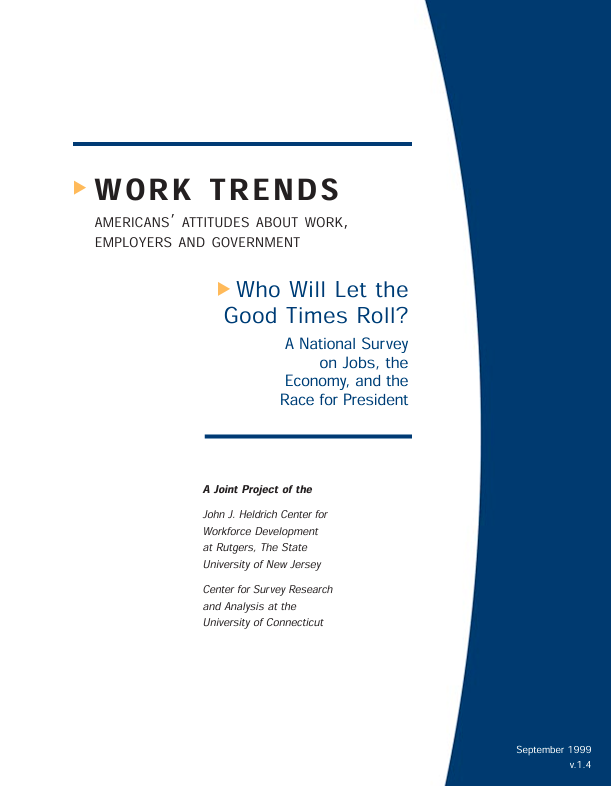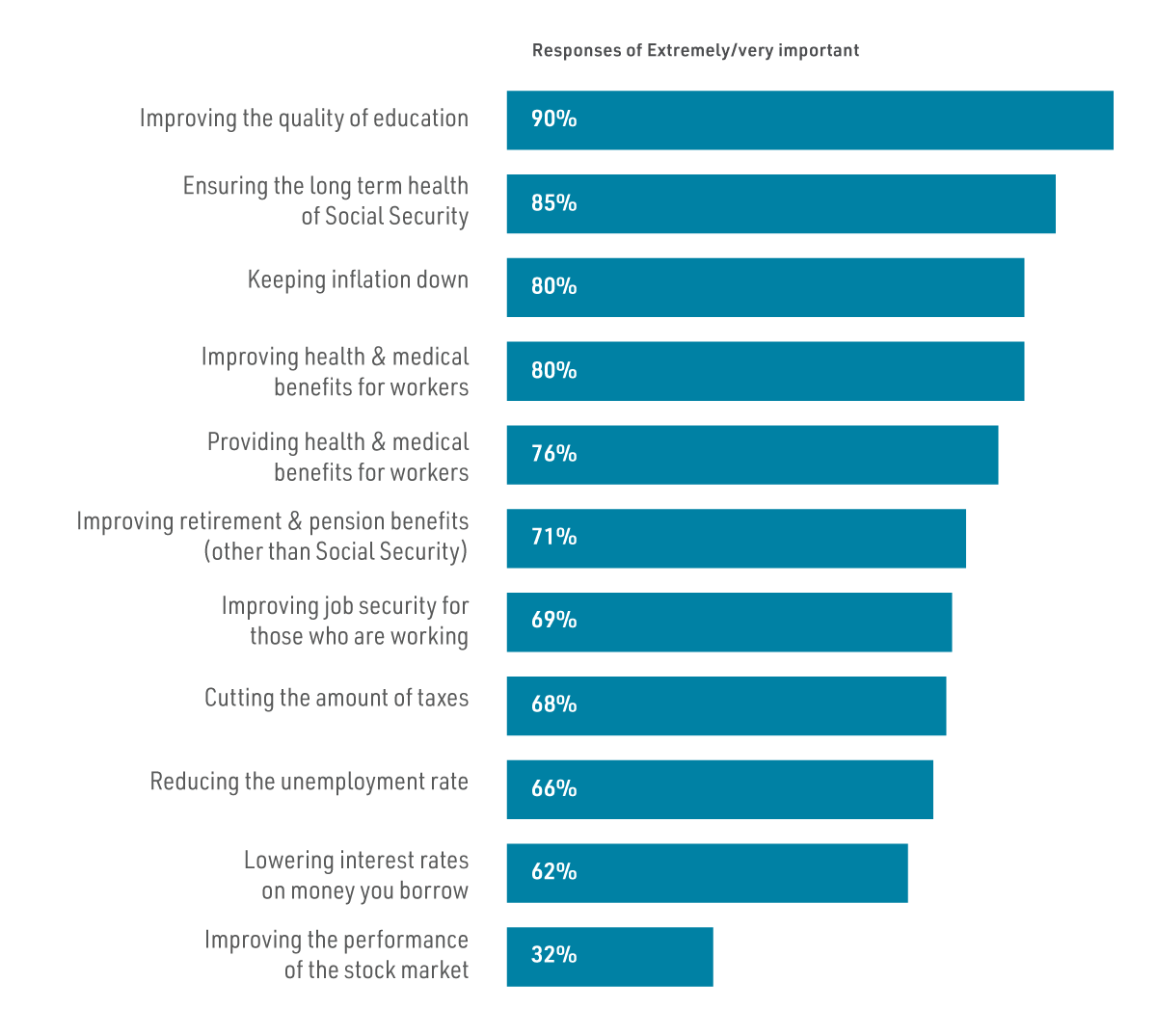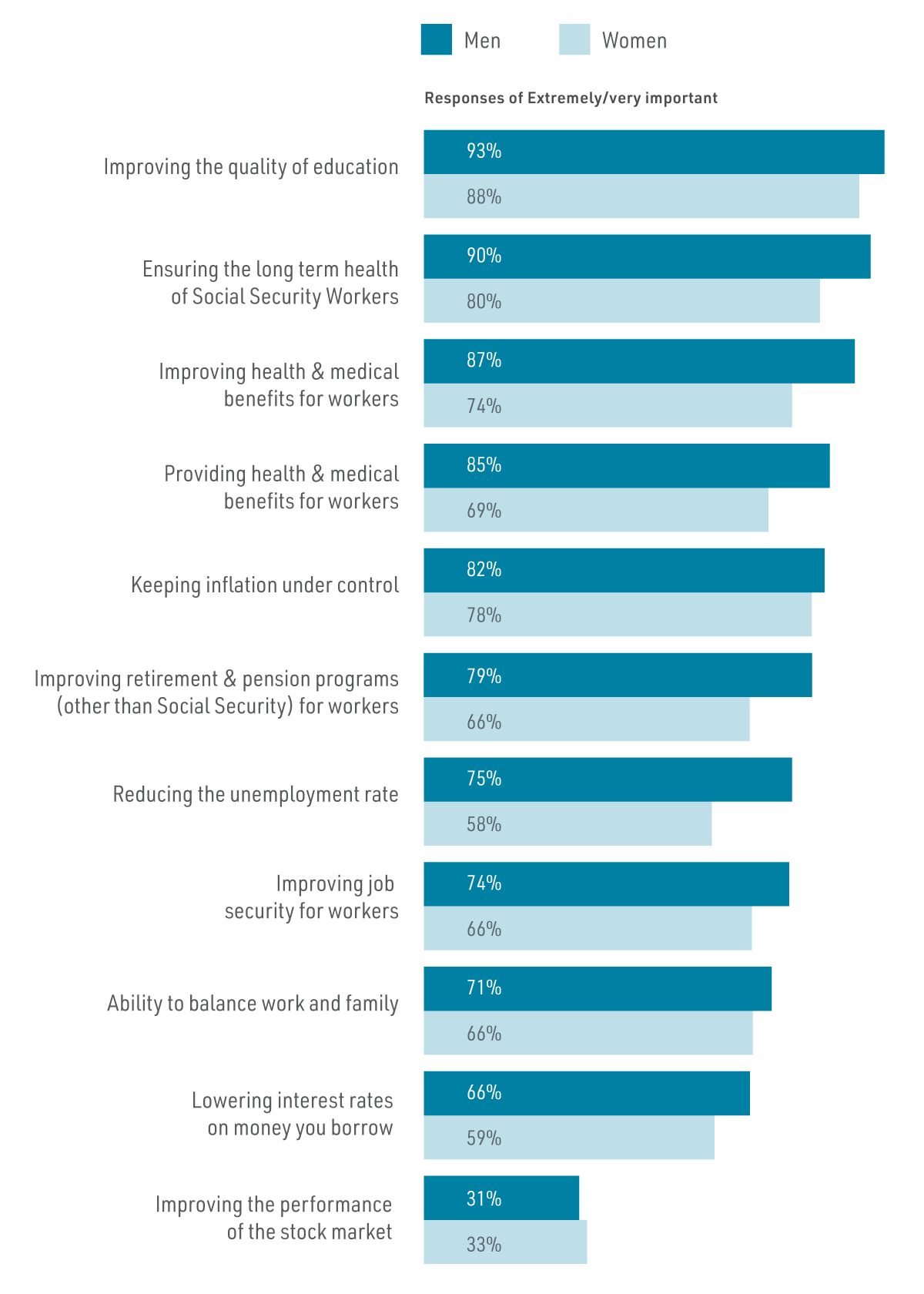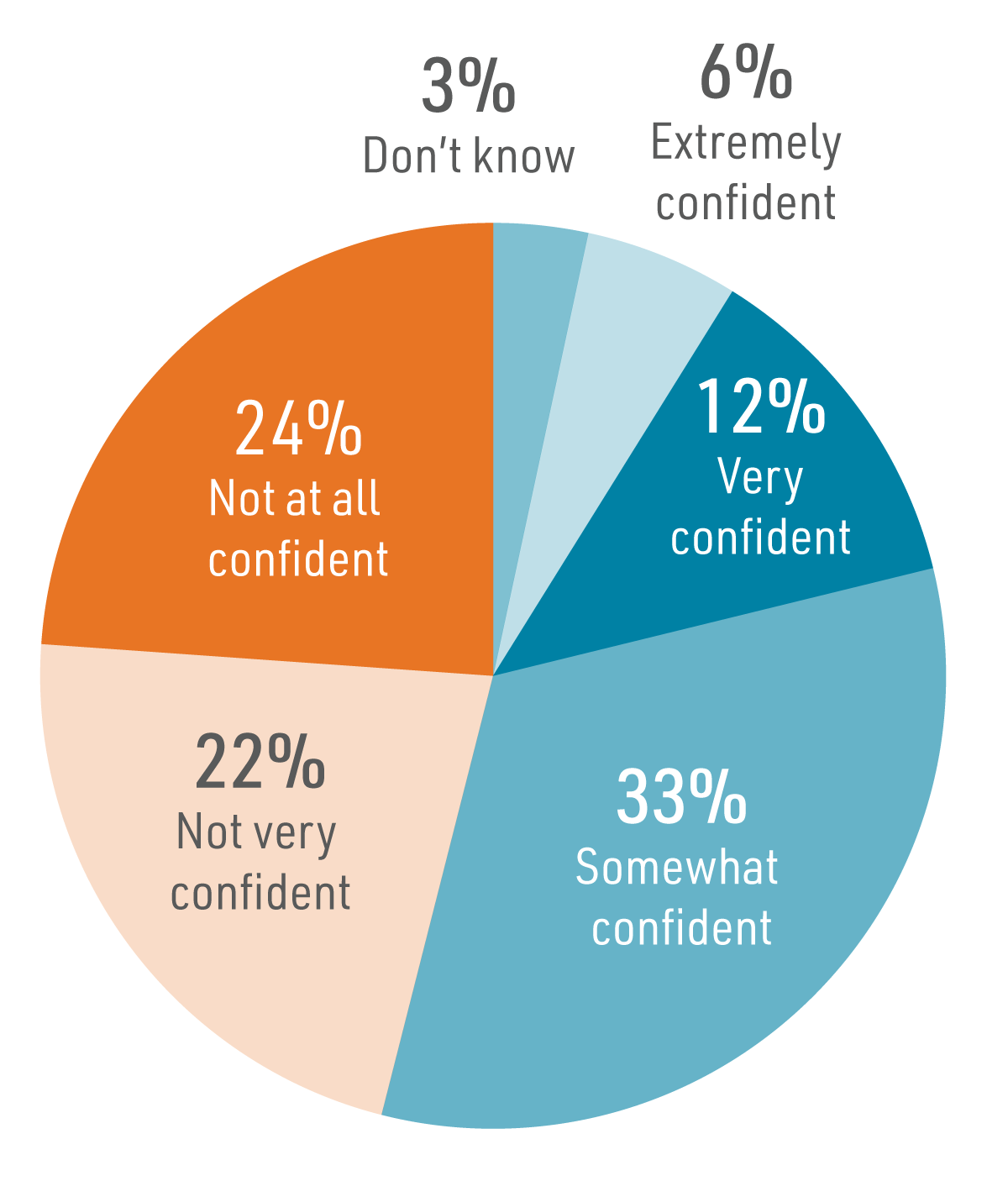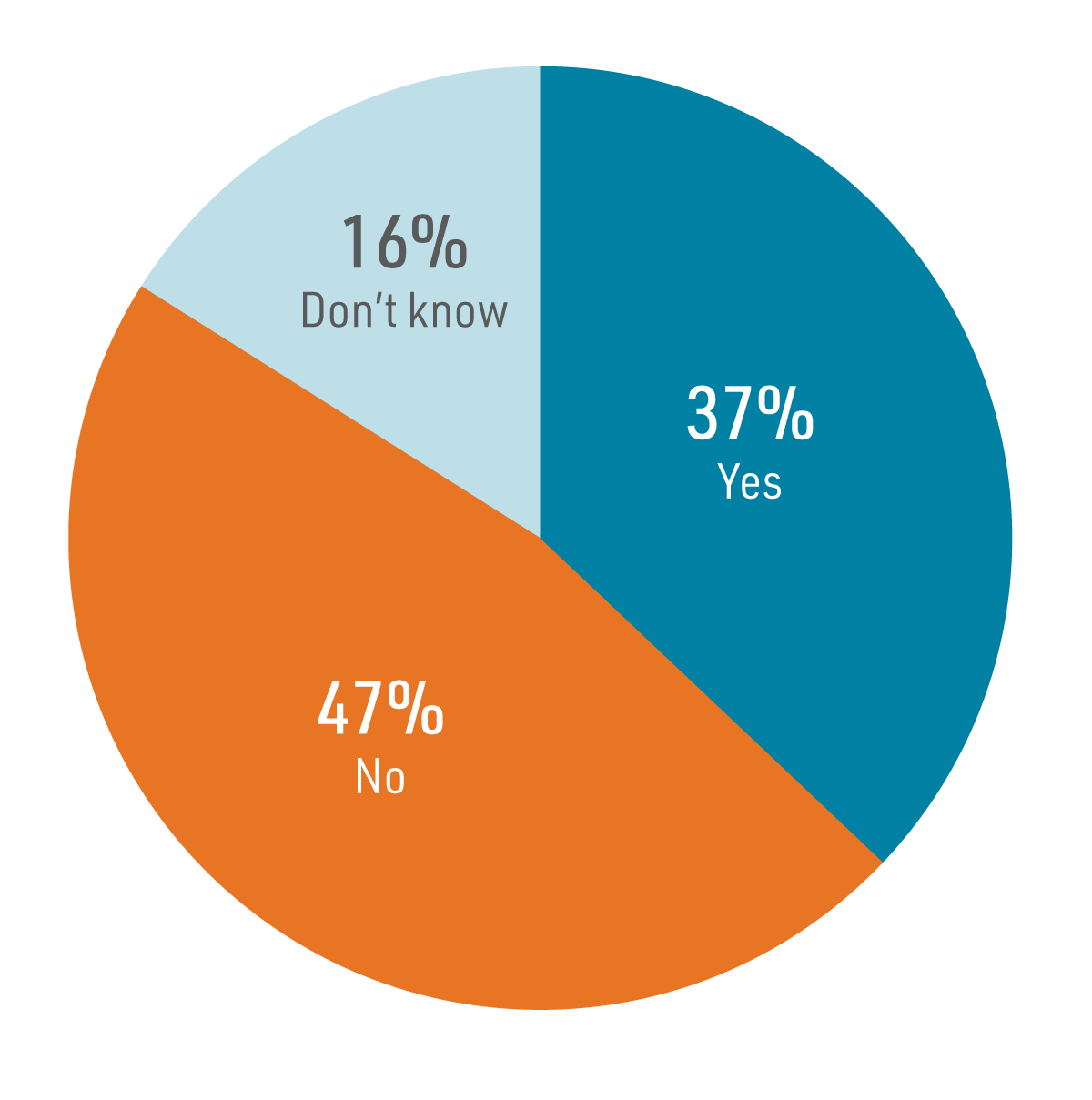Multiple studies conducted in the late 1990s and early 2000s evaluated workers’ experiences and perceptions of a labor market transformed by technology and declining conditions. In April 2001, the national unemployment rate climbed to a 30-month high of 4.5%. Businesses trimmed their payrolls by 223,000 jobs, the largest reduction since 1991, a recession year.
Studies
Who Will Let the Good Times Roll? A National Survey on Jobs, the Economy, and the Race for President
This telephone survey of 1,000 adult members of the workforce in the contiguous United States was conducted from July 30 through August 12, 1999 .
Holding On: Americans Assess a Changing Economic Landscape
This telephone survey of 1,010 adult members of the workforce in the contiguous United States was conducted from April 5 to 22, 2001 .
Selected Findings
Almost all (90%) working Americans believed that candidates’ positions on the job situation would be an important factor in how they would vote in the 2000 presidential election and the next congressional election.
Respondents were asked to assess the importance of a series of policies a candidate might address during a campaign. The relative importance of these issues among American workers can be seen in the figure.
The voting decisions of women play a critical role in each election. In general, women felt more strongly about an activist government, a preference seen in their responses across a series of potential issues addressed by candidates. Women were especially interested in education, the stability of Social Security, providing and improving medical benefits, and reducing unemployment.
Entering office without a “mandate” from the electorate undoubtedly had a role in the Bush Administration’s vigorous message promoting a tax cut as a remedy for an ailing national economy.
- When asked if cutting personal income taxes was a good way to prevent or end an economic downturn, 47% of Americans agreed and 37% disagreed.
- Only 18% of workers said they were extremely or very confident that a tax cut would benefit them personally; 46% were not very confident or not at all confident it would do so.
Additional Topics Covered
Personal economic behaviors changing to react to a slowing economy.
Job training and support for governmental policies about job training, disaggregated by occupational type.
Governmental priorities for managing the economy.
How the government should spend the surplus.

